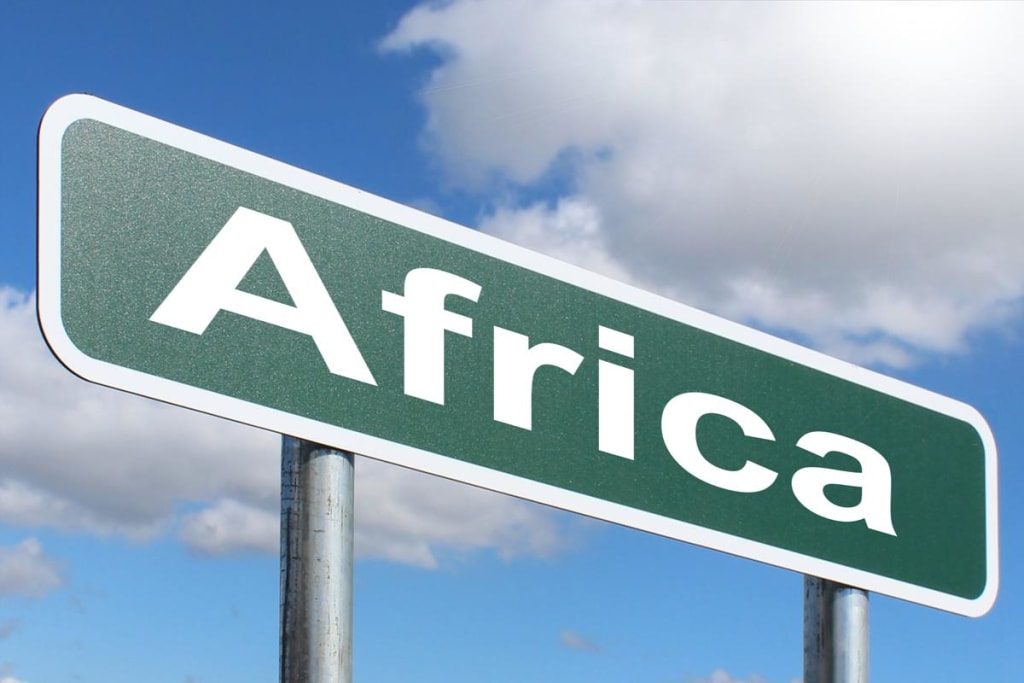Here’s Why Today’s Investors Should Rush to Africa
Being victim to the multi-century oppression, Africans are finally taking back what's rightfully theirs. And the international investors should immediately jump at this opportunity

“A Cradle of Humankind” - that’s the name the world gave Africa when the archaeological discoveries made it clear that the first people to walk the Earth were, in fact, Africans. And the world starts to appreciate the value of this continent to some extent.
As the recent numbers indicate, Africa is slowly but steadily beginning to catch up with the rest of the world. Economic-wise, Africa is constantly getting rated as the fastest-growing continent for quite some time now. And as the countries are getting stronger, the investors from all around the world should be racing to get their share of this rapidly emerging market.
The world taking advantage of Africa
But before all this, before Africa set out on this improvement course, the continent has been constantly drowning in poverty and hardship for many centuries. Not only did the African people fail to keep up with the developmental pace at which the rest of the world was rushing, but they did also experience the most humiliating exploitation in the history of humanity.
The biggest empires the world has ever seen, be it Rome, Byzantine Empire, Iran, and many more have ravaged the continent with their constant conquests and campaigns. They sought the African resources, be it human or natural, the territory, and seaports.
Because of this continuous exploitation, the African people couldn’t really tackle their own issues, and adding the external ones, they remained in this state of extreme misery. And it has been the case up until the dawn of the 21st century.
Taking its rightful place
First off, the world is increasingly getting more “civilized” and considerate. As of today, the international law and various global organizations work tirelessly to protect every nation’s rights of freedom, sovereignty, and dignity. No country can invade, say, Algeria, like France would do back in the day, and expect to come out of this without the consequences.
But more importantly, the African nations realized their worth and began to fight for what’s rightfully theirs. Now, we mentioned that this rise began at the dawn of the 21st century but this development was greatly influenced by the massive independence movement that took place at the end of the last century.
As tens of African nations gained their independence, they set out on a course of finding their identity and a subsequent strategy of building the real nation. But this process wasn’t easy by any stretch of the imagination: civil wars, external resistance, and poverty still ravaged the continent. However, the African’s resilience proved to be more prevalent than these obstacles and today, we’re witnessing how they’re slowly ascending.
A-Lister on the continent
Now, one particular country, South Africa, has long been a partial member of the so-called “developed states”. After the country withdrew its brutal Apartheid policy and institutionalized racial discrimination, the Western world quickly became interested in it. Even the rapidly developing nations started to pay their attention to South Africa, resulting in the creation of BRICS - a trade agreement between Brazil, Russia, India, China, and South Africa.
And now, we’re seeing a country that has a Gini index of 63 which is considered significantly high, a GDP per capita of $6,300, and is the second-largest economy in Africa after Egypt. The country has a developed financial market with many South African Forex brokers, intensive exchange practice, and vast investment opportunities.
Other countries are catching up
But South Africa is a rather renowned country in Africa; what about others? Well, as the economic indicators show, there’s a lot of hope for them as well. A systematic shift towards financial sustainability and growth is taking place in Sub-Saharan Africa, and many financial experts call this region the next real emerging market.
The conventional truth about this region holds that it lacks comprehensive technological equipment and telecommunication infrastructure, is deeply entrenched in crime, corruption, and trafficking, and overall, is a risky environment to invest in.
And that, for the most part, has been true for a while. In fact, at the dawn of this century, there were only 66 investment firms registered on a sub-Saharan stock exchange platform, while there was practically no infrastructure for providing banking services to millions of people. Even today, the continent is struggling with the unbanking problem.
However, the situation has significantly improved over the last decade. Remember those 66 investment firms? Well, now there are 30 stock exchanges with over 500 investment firms and that number is constantly expanding. This is a great opportunity for international investors and they shouldn’t let this chance slip.
More importantly, the average GDP growth rate in sub-Saharan Africa is also looking promising in this decade. Starting from 2010 at 5.6% growth, it remained near this point for four years; in 2015, Angola and Nigeria started to show an economic downturn which, in turn, dragged the whole region. But from 2017, the growth started to speed up by 2.6%, and if it weren’t for those two countries, the sub-Saharan economy would expand much more rapidly.
African nations are forging their path
All this is a result of the eventual stabilization of the continent. As these countries are finally discovering their identity and a so-called “destiny”, the infrastructure improves, the production possibilities emerge, and the continent becomes ever-more lucrative for various industrial players. Just the mere fact that Africa has the youngest population is proof that if these people find something to hold on to and sustain their lives, they’ll never let go of it because their youth and hope towards future won’t let them.
The international support is also increasing. We mentioned the BRICS trade agreement above and it’s been doing some incredible things not just in South Africa, but on the continent as a whole. China is to be considered the biggest contributor to the development process. In 2013, it invested $26 billion into the continent.
And as if that wasn’t already enough, it nearly doubled its commitment in 2017, offering $60 billion in loans and aid programs to the continent. Added to that China’s “Belt and Road” initiative and you’re getting an astounding investment that promises to enforce the infrastructure in Africa.
Another very influential organization that’s contributing to the development of the continent is Red Cross. This non-governmental organization is known for its humanitarian projects in countless areas ravaged with war, famine, and geographical catastrophe. And in Africa, Red Cross is trying new ways to better facilitate its developmental projects. Recently, it was announced that the organization was implementing blockchain into its developmental projects that will make them more targeted and instantaneous.
More obstacles ahead
Now, this doesn’t necessarily mean that Africa is finally out of its misery and poverty and every effort should be completely suspended. Not at all! Now, more than ever, every African nation has to come together to improve their infrastructure, fight crime, and overcome the rampant poverty.
As the above-mentioned growth rates indicate, they alone won’t be enough to achieve all that. Africans, with the help of the international community, have the power to speed up this upward trend towards economic, political, and social stabilization. And this, in turn, will make Africa one of the best markets to invest in.






Comments
There are no comments for this story
Be the first to respond and start the conversation.